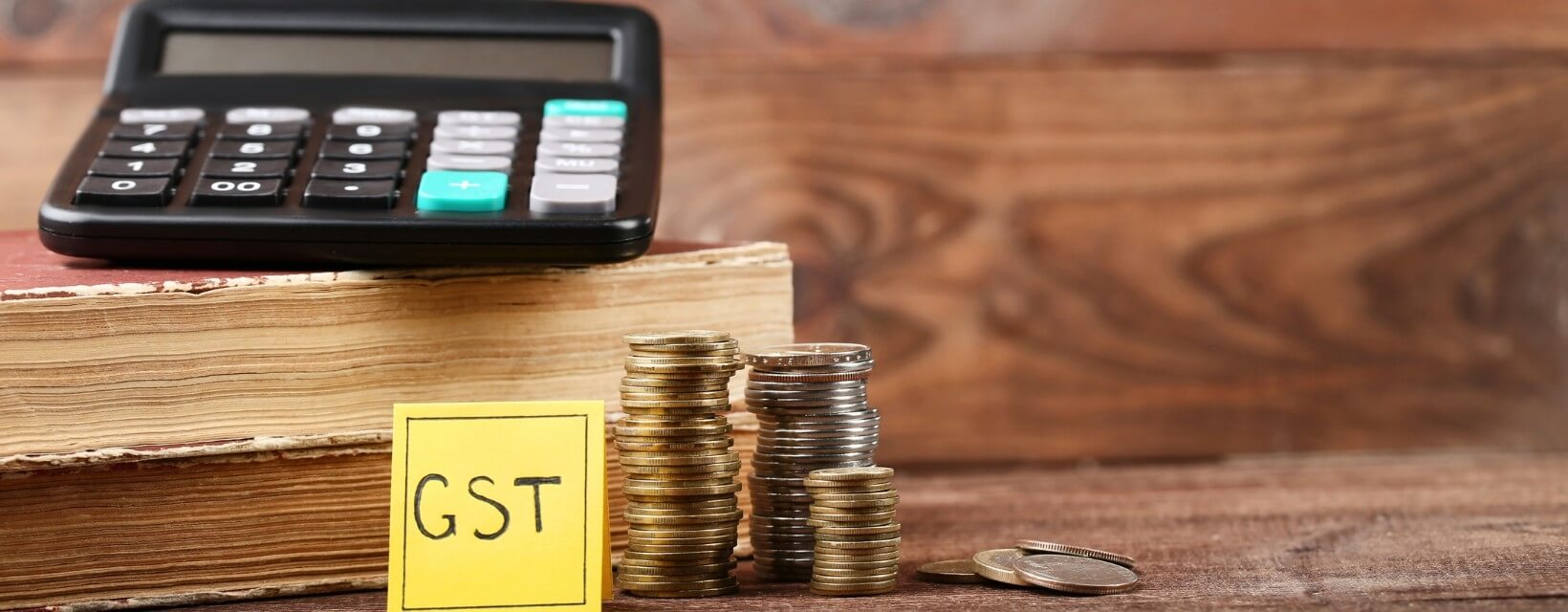How do GST credits benefit businesses and influence Income tax deductions?
Introduction:
Goods and Services Tax, commonly known as GST, is a cornerstone of the Australian taxation system. Within this framework, GST credits stand out as a significant component that every business should be aware of.
Essentially, these credits represent the GST amount that businesses pay on their purchases, allowing them to claim it back, thereby reducing their net expenses. But the influence of GST credits doesn't stop there. They also play a crucial role in determining income tax deductions. By excluding the GST component from business expenses, they ensure that businesses don't overpay on their taxes.
This blog aims to provide a comprehensive understanding of how GST credits not only offer financial relief to businesses but also shape their income tax calculations. A clear grasp of this topic can lead to more accurate tax filings and better financial planning.
Key takeaways
GST credits allow businesses to recover the GST they've paid on their purchases.
Businesses must be registered for GST to claim GST credits.
Businesses registered for GST deduct the purchase price minus the GST component for income tax purposes.
Purchases related to input taxed supplies allow businesses to claim the full purchase amount as a deduction.
Non-registered businesses can claim the full purchase cost, including the GST component, as an income tax deduction.
What is GST credit?
GST (Goods and Services Tax) is a value-added tax levied on most goods and services sold for domestic consumption. When businesses buy goods or services, they pay GST on those purchases. A GST credit, often referred to as an "input tax credit," is essentially a rebate or refund for the GST that businesses have paid on their business-related purchases.
Let’s understand better with an example
Suppose you own a bookstore. You buy a book from a publisher for A$110, which includes a 10% GST (A$10). When you sell that book to a customer for A$220, you collect a 10% GST (A$20).
Now, without the GST credit system, you'd have to remit the full A$20 to the government. But since you've already paid A$10 GST when you bought the book, it wouldn't be fair to pay it again. This is where the GST credit comes into play.
You can claim a GST credit of A$10 (the GST you paid on your purchase). So, instead of remitting the full A$20 you collected from your customer, you only remit A$10 (A$20 - A$10 GST credit) to the government.
When can you claim a GST credit?
Claiming a GST credit is essential for businesses to ensure they aren't overpaying taxes. However, there are specific criteria that purchases must meet for their GST to be claimable. These specific criterias are discussed below:
-
Registration:
You must be registered for GST to claim any GST credits.
-
Business purpose:
The goods or services you purchase should be for business use. If a purchase is partly for business and partly personal, you can only claim the business portion.
-
GST included:
The items you've purchased must include GST in their price.
-
Tax invoice:
For purchases over A$82.50, you need a valid tax invoice from your supplier to claim the GST credit.
-
Time limit:
Here's a 4-year time limit to claim these credits.
Don't leave your GST credit claims to chance.
When can't you claim a GST credit?
While the GST credit system is designed to prevent double taxation, there are certain situations where businesses cannot claim a credit. Understanding these exceptions is crucial to ensure compliance with tax regulations. Here are few exceptions:
-
Not registered:
If you're not registered for GST.
-
No GST in price:
Items that don't have GST in their price.
-
Wages:
Salaries or wages you pay to your employees, as they don't have GST.
-
Invalid tax invoice:
If you don't have the necessary tax documentation for purchases over A$82.50.
-
Specific exclusions:
Some items, even if they include GST, are excluded. For instance, if you buy a car for business but it's over a certain price limit, you can't claim the full GST credit.
Special rules for claiming GST credits
Understanding GST credits can be tricky because businesses often face different situations. Even though the basic ideas behind GST credits are simple, there are certain situations that have their own set of rules. These special rules discussed below help businesses claim credits correctly and stay in line with tax guidelines.
-
Pre-establishment costs:
When setting up a company, there are certain costs incurred even before the company officially exists, like set-up fees, business registration, trading stock, and acquiring business premises. The company can claim GST credits for these costs, but there are specific criteria:
- The purchase must be aimed at establishing the company or for its business operations once it's set up.
- The company should be registered for GST within six months of the purchase.
- The individual making the purchase should become a member, officer, or employee of the company.
- The company must fully reimburse the individual for the purchase.
- The purchase shouldn't be used for making input-taxed sales or personal purposes.
- Neither the company (if it acquires the item from you later) nor you should be entitled to claim a GST credit for the purchase.
-
Second-hand goods:
If you buy second-hand goods from suppliers who aren't registered for GST, you can still claim a GST credit, even if GST wasn't included in the price. However, this is applicable only if you intend to sell or exchange these goods, not manufacture with them.
-
Other special rules:
There are additional specific rules for claiming GST credits in various scenarios, such as:
- Periodic or progressive supplies: This includes lease payments or service contracts where payments are made periodically.
- Corporate credit cards: Rules for purchases made using company credit cards.
- Land purchases: Specific rules for buying land under standard land contracts.
- Utilities: Rules for supplies of gas and electricity by public utility providers.
- Lay-by purchases: If you buy something on lay-by, there are special rules for claiming the GST credit.

How GST credits impact income tax deductions?
When a business makes a purchase, it often pays GST as part of the purchase price. If the business is registered for GST, it can claim this GST amount back as a "GST credit". However, when it comes to income tax, the business needs to be careful about the amount it claims as a deduction. The GST credit claimed has a direct impact on this.
-
Businesses registered for GST:
Businesses registered for GST can claim GST credits, and for income tax purposes, the deductible amount is the purchase price minus the GST component. This is because the business has already claimed the GST back, preventing double-dipping through a deduction.
Example
Imagine a business buys equipment for $110, which includes $10 of GST.
- The business claims the $10 GST as a credit.
- For income tax purposes, the business can only claim a deduction for the $100 (excluding the GST), because it's already getting the $10 back as a GST credit.
-
Purchases related to input taxed supplies:
Sometimes, businesses may make purchases related to activities that aren't subject to GST (known as 'input taxed supplies'). In such cases, the business can claim the full purchase amount, including the GST component, as a deduction because it isn't seeking any GST credit for these purchases.
Example
A business spends $110 on repairs for a residential property it rents out (renting residential property is an input taxed supply).
- The business can't claim the $10 GST as a credit.
- For income tax purposes, the business claims the full $110 as a deduction.
-
Businesses not registered for GST:
When a business is not registered for GST, it has the opportunity to claim the full purchase cost, including the GST component, as a deduction. This distinction arises from the fact that businesses in this category do not receive any GST refunds as credits, allowing them to offset the full expense when calculating their deductions.
Example
A small business, not registered for GST, buys supplies for $110, including $10 GST.
- The business can't claim any GST credit.
- For income tax purposes, the business claims the full $110 as a deduction.
-
Depreciation of capital assets:
When a business buys a long-term asset (like machinery), it often claims the asset's decline in value (depreciation) as a deduction over several years.
-
Income tax deduction:
If the business claimed a GST credit for the asset, the asset's "base value" for depreciation purposes is the purchase price minus the GST component.
Example
A business buys machinery for $1,100, including $100 GST.
- The business claims the $100 GST as a credit.
- For income tax purposes, the business calculates depreciation on the machinery using a base value of $1,000 (excluding the GST).
Take control of your finances, register for GST, and unlock tax benefits today.
Benefits of GST credits to businesses
-
Enhanced cash flow:
GST credits directly impact a business's cash flow. By reclaiming the GST paid on business-related purchases, companies can effectively lower their net expenses. This reclaimed amount can be crucial, especially for small businesses, as it can be reinvested to drive growth or manage operational costs.
-
Cost savings:
The ability to claim back GST means businesses aren't bearing the full brunt of the tax on their purchases. This leads to direct cost savings, which can be significant over time, especially for businesses with substantial operational expenses.
-
Competitive advantage:
With the cost savings from GST credits, businesses might be in a position to offer their products or services at more competitive prices. This can give them an edge in the market, potentially leading to increased sales and market share.
-
Simplified financial management:
The GST system provides a structured approach to accounting. By keeping track of GST credits, businesses can maintain cleaner financial records, making it easier to monitor expenses, predict financial trends, and make informed business decisions.
-
Encouragement for compliance:
The potential to claim GST credits acts as an incentive for businesses to ensure they're compliant with tax regulations. This reduces the risk of penalties and legal complications, fostering a culture of accountability and transparency.
-
Flexibility in business operations:
The financial relief provided by GST credits can offer businesses the flexibility to explore new ventures, invest in research and development, or expand their operations. This can be especially beneficial for startups and small businesses looking to scale.
-
Stabilisation during economic fluctuations:
During economic downturns or periods of uncertainty, the ability to claim GST credits can provide a financial cushion, helping businesses navigate challenging times and potentially avoiding drastic measures like layoffs.
-
Positive business reputation:
A business that is compliant with tax regulations and transparent in its financial dealings can build a positive reputation. This can lead to increased trust from stakeholders, customers, and potential investors.

Conclusion
Its clear that GST credits can make a big difference to businesses, both large and small. For those that are already registered for GST and those looking to register, CleanSlate offers services to ensure you are correctly registered and claiming the right credits. Not only does this aid in making sure all taxes are paid on time, but it also allows you to gain the most from any GST credits available.
It is wise for business owners to not leave GST registration or credit management up to chance and instead have a professional go over their accounts. This could be the difference between an income deduction or receiving much-needed relief in the current uncertain climate.
As such, if you are looking for an accurate and straightforward way to ensure you've got your name down for any available GST credits or other deductions, contact us today!









